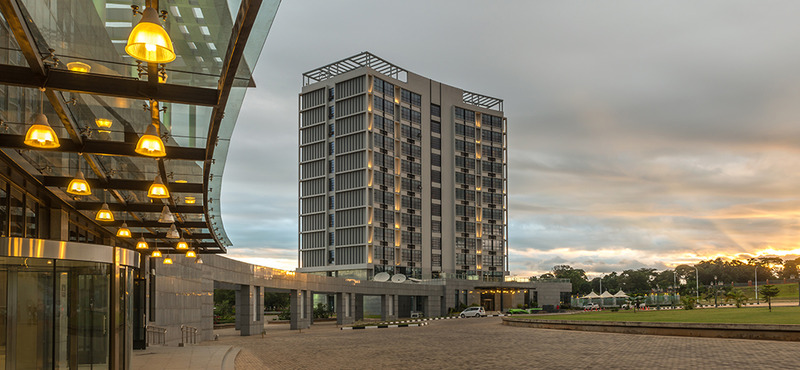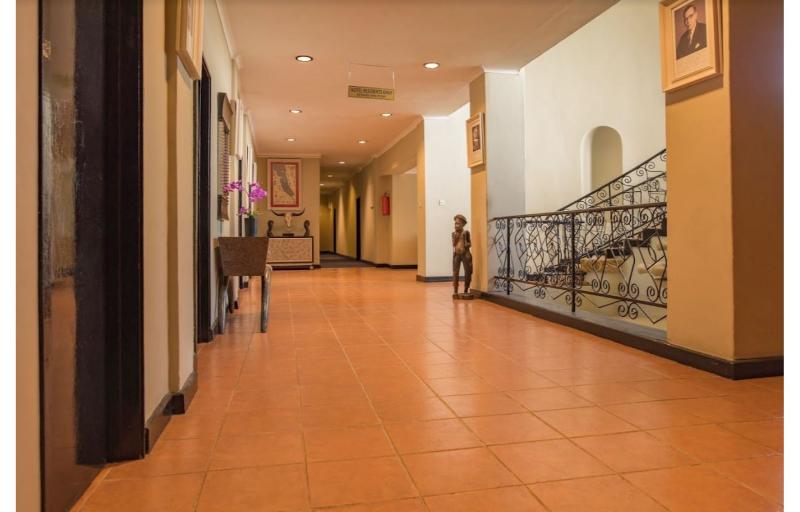
Visit Malawi: Exploring Beautiful Landscapes & Enjoying an
- Home
- ,
- Malawi
About Malawi
Malawi is a small country in southern Africa that is often overlooked by travelers. However, this beautiful country has a lot to offer those who take the time to explore it.
One of the highlights of Malawi is its stunning natural beauty. The country is home to several national parks, including Liwonde National Park and Nyika National Park, which offer the chance to see a wide variety of wildlife, including elephants, lions, and leopards. Lake Malawi, which is one of the largest lakes in the world, is also a popular destination for travelers. Its clear waters are perfect for swimming, snorkeling, and scuba diving.
Malawi is also home to a rich cultural heritage. Many of the country's ethnic groups maintain their own traditions and customs, which can be seen in their music, dance, and art. The Chewa people, for example, are known for their colorful masks and elaborate dances, while the Yao people are known for their intricate beadwork and weaving.
Travelers to Malawi will also find a warm and welcoming population. The locals are known for their hospitality, and visitors will have the opportunity to interact with them in a variety of ways. Whether it's sharing a meal, learning about traditional customs, or simply chatting with locals in a market, travelers to Malawi are sure to have a rich and rewarding cultural experience.
In addition, Malawi is an affordable travel destination, making it an ideal choice for budget-conscious travelers. Accommodations range from budget hostels to luxury lodges, and food and transportation are also reasonably priced.
Overall, Malawi is a hidden gem that is just waiting to be discovered. With its stunning natural beauty, rich cultural heritage, and welcoming population, it's a destination that should be on every traveler's list.
Popular Stays in Malawi
Explore some of the most affordable vacation packages and accommodation stays in Malawi
Things to do in Malawi
Choose from a range of unique experiences and fun activities in Malawi
Explore all stays in Malawi
Explore all things to do in Malawi
Explore other popular holiday destinations
Frequently Asked Questions about Malawi
What are the top activities to do in Malawi?
Malawi offers a range of activities to suit all types of travelers. Here are some popular ones: - Visit Lake Malawi, which is the third-largest lake in Africa and offers great swimming, snorkeling, and diving opportunities. - Explore Liwonde National Park, which is home to a wide range of wildlife, including elephants, hippos, and crocodiles. - Learn about the local culture by visiting the Malawi National Museum in Blantyre or the Chongoni Rock Art Area, a UNESCO World Heritage Site. - Go hiking in the beautiful Mulanje Mountain range, which offers stunning views and a challenging climb. - Relax on the beaches of Cape Maclear, which are known for their clear waters and white sand.
What are some must-see attractions in Malawi?
There are many must-see attractions in Malawi. Here are some of the most popular ones: - Lake Malawi offers stunning views and a range of activities, as mentioned previously. - The Nyika Plateau National Park is a beautiful park with lush vegetation, rolling hills, and a range of wildlife, including zebras, antelopes, and leopards. - The Liwonde National Park, which is also mentioned above, is home to the Big Five and other wildlife. - The Chongoni Rock Art Area is a UNESCO World Heritage Site and features over 100 sites with rock paintings that are up to 2,000 years old. - The Nkhotakota Wildlife Reserve is a large reserve with a range of wildlife, including elephants, hippos, and crocodiles.
What is the best time of year to visit Malawi?
The best time to visit Malawi is during the dry season, which runs from May to October. During this time, the weather is generally warm and dry, with clear skies and little rain. This is also the best time for wildlife viewing, as the animals tend to gather around water sources during the dry season. However, it is also the busiest time of year for tourism, so expect crowds and higher prices. The wet season, which runs from November to April, can be hot and humid, with heavy rainfall and the occasional tropical storm. This can make travel difficult, but it is also the best time for bird watching and the landscape is lush and green.
What language do they speak in Malawi?
The official language of Malawi is English, but the most widely spoken language is Chichewa. Other languages spoken in Malawi include Tumbuka, Yao, and Lomwe. English is widely spoken in tourist areas, but it is always a good idea to learn a few basic phrases in Chichewa or another local language to help you communicate with locals.
What is the currency in Malawi?
The currency in Malawi is the Malawian kwacha. It is a good idea to exchange some money before you arrive in Malawi, as it can be difficult to find currency exchange services outside of major cities. ATMs are available in larger cities, but they may not always work or accept foreign cards. Credit cards are accepted in some hotels and restaurants, but it is always a good idea to have some cash on hand.
What is the food like in Malawi?
The food in Malawi is generally simple but tasty. Maize is a staple food in Malawi and is served in various forms, including nsima (a thick porridge), chambo (a type of fish), and nyama (meat). Vegetables such as beans, cabbage, and pumpkin are also commonly eaten. For a taste of local street food, try a mandasi (a type of doughnut) or a kachumbari (a salad made with tomatoes, onions, and chili peppers).
What is the culture like in Malawi?
The culture in Malawi is diverse and vibrant. The country is home to a range of ethnic groups, each with their own customs and traditions. The Chewa people, for example, are known for their colorful dances and elaborate masks, while the Yao people are known for their rich history and traditions. Music and dance are an important part of Malawian culture, with traditional instruments such as the kalimba (thumb piano) and the marimba (xylophone) being used in performances.
What are the accommodation options in Malawi?
There are a range of accommodation options in Malawi to suit all budgets and preferences. Here are some popular ones: - Camping: There are a number of campsites throughout Malawi, particularly around Lake Malawi. - Guesthouses: These are small, family-run establishments that offer basic accommodation and often include meals. - Lodges: These are more upmarket than guesthouses and offer a range of facilities, including swimming pools and restaurants. - Resorts: There are a number of resorts around Lake Malawi that offer luxury accommodation and a range of activities, such as water sports and spa treatments. - Hotels: There are a range of hotels throughout Malawi, particularly in larger cities such as Lilongwe and Blantyre.
What is the transportation like in Malawi?
The transportation system in Malawi is generally basic but reliable. Here are some options: - Buses: These are the most common form of public transportation in Malawi and connect most major cities and towns. - Taxis: Taxis are widely available in larger cities, such as Lilongwe and Blantyre. It is always a good idea to negotiate the fare before you start your journey. - Minibuses: These are small, shared taxis that operate on set routes between towns and cities. They can be crowded and uncomfortable, but they are also cheap. - Car rentals: Car rentals are available in larger cities, but it is important to note that driving in Malawi can be challenging due to poor road conditions and erratic driving habits.
What are some tips for staying safe in Malawi?
Malawi is generally a safe country to visit, but it is important to take precautions to ensure your safety. Here are some tips: - Be aware of your surroundings and avoid walking alone at night, particularly in urban areas. - Keep valuables such as cameras and phones out of sight, particularly in crowded areas. - Be cautious when using ATMs and avoid carrying large sums of cash. - Only use licensed taxis and negotiate the fare in advance. - Respect local customs and dress modestly, particularly in rural areas.



















